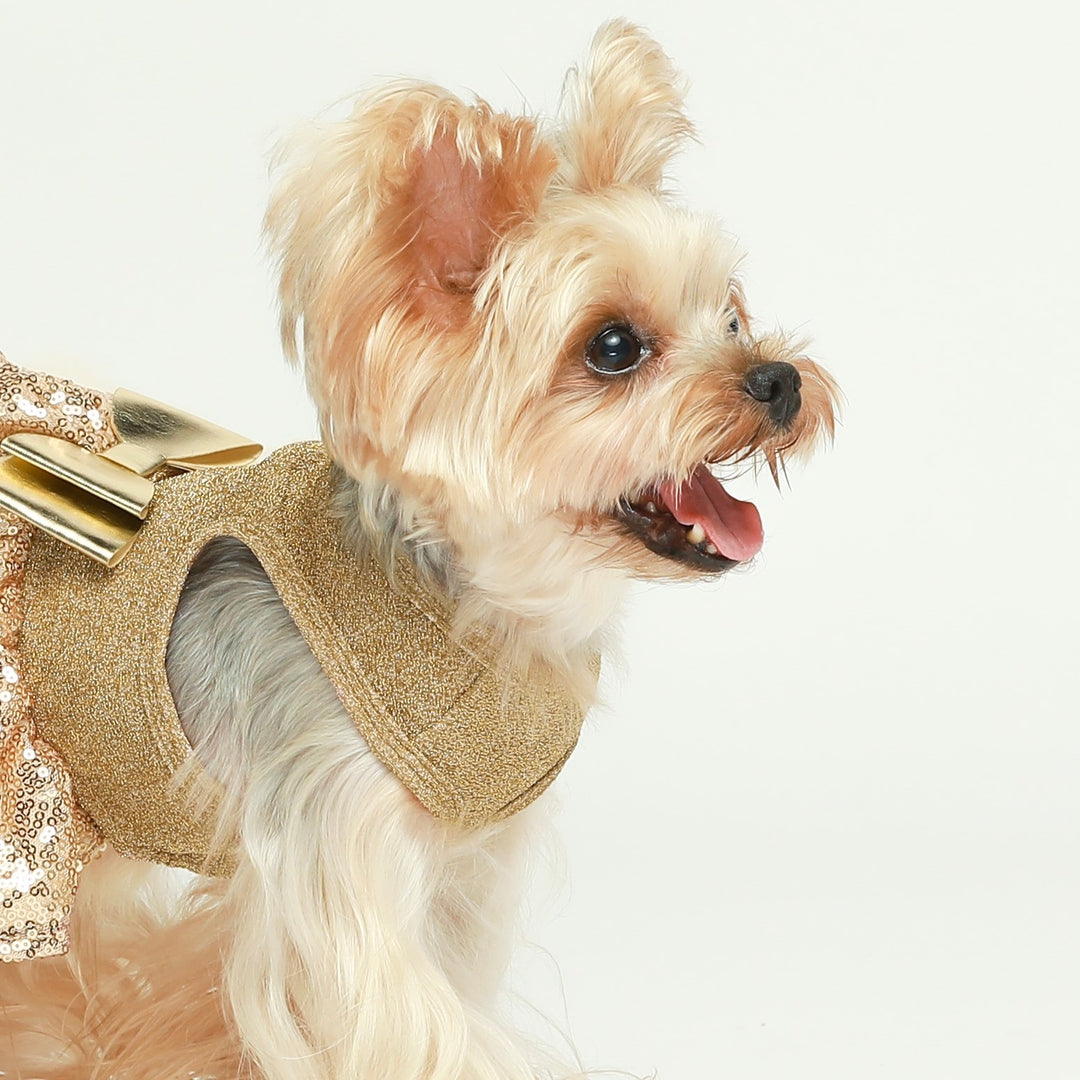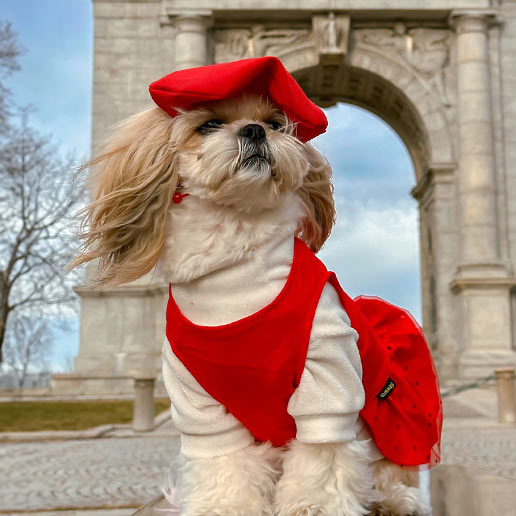Senior Dog Care: How to Keep Your Aging Pet Happy and Healthy
Caring for an older dog is like adjusting to a new rhythm of life that's slower yet just as full of love. As your furry friend enters their senior years, it's time to tweak how we look after them to make sure they stay as happy and comfortable as possible. This article is going to be your go-to for understanding what your older pup needs, from the right kind of food and gentle exercise to keeping their brains sharp and their tails wagging. We'll also talk about making your home a cozy spot for their older paws and when the time comes, how to handle those tough decisions with care and compassion. Let's work together to give your aging dog the best care in their twilight bark.

1. Feeding Your Old Friend Right
What's On The Senior Menu?
Older dogs don't run around as much as they used to, so their diets need to change to stop them from gaining too much weight. You'll want to look for dog foods that are lower in calories but still packed with essential nutrients to keep their joints, heart, and digestion working well. Think of it like choosing a salad over a burger – it's about staying healthy without the extra load.
Picking the Perfect Kibble (and More)
It's not just about buying any senior dog food off the shelf. Look for ingredients that are easy to digest, like lean meats, wholesome grains, or even sweet potato. Avoid anything with fillers or artificial additives that could be rough on your dog's stomach. If you're lost in the pet food aisle, have a chat with your vet to find out what specific brands or recipes they recommend for your pooch.

Yorkie in a Pink Lace Dog Dress
Sprinkling In Some Extras
Just like humans pop vitamins, some dogs benefit from a little extra boost too. Supplements can be a game-changer, especially for joint health – think glucosamine or fish oil. But remember, more isn't always better. Always talk to your vet before starting any new supplement to make sure it's safe and needed.
Water, Water Everywhere
Lastly, older dogs might forget to drink enough water, which can lead to problems, especially with their kidneys. Keeping fresh water within easy reach is super important. If your dog is a bit forgetful, try placing a few extra bowls around the house or even investing in a water fountain to encourage them to stay hydrated.
2. Staying Active at a Slower Pace
Finding the Right Tempo for Exercise
Our senior pups may not be the spry youngsters they once were, but they still need to get moving - just at a slower pace. Think of it as swapping out marathon training for leisurely strolls. Regular, gentle exercise helps keep their muscles toned and minds engaged. It's all about tailoring activities to match their slower tempo without overdoing it.

Low-Stress Workouts for Your Old Pal
Playing fetch is great, but for older dogs, it's more about consistency than intensity. Activities like short walks in the neighborhood or a gentle game of tug can do wonders. If you have access to a pool or a safe water body, swimming can be an excellent low-impact exercise that's easy on their aging joints.
Watching for the "I'm Tired" Signals
Be attentive to your dog's body language. Panting a bit too much or lagging behind? These are your dog's ways of saying it's time to take a break. Always let them set the pace, and never push them to go farther or faster than they're comfortable with.
Supportive Therapies for Additional Comfort
As dogs age, they might need some extra help to keep their bodies feeling good. This is where things like massage, physical therapy, or even canine acupuncture come into play. These therapies can ease pain, improve circulation, and enhance overall well-being. Plus, think about the bonding time! Always consult with your vet to find what's best for your furry buddy.

3. Regular Check-Ups: Preventative Care for Your Aging Pooch
Vet Visits Are Your Best Friend
Your senior dog's health can change quicker than a pup's, so those vet check-ups are more important now than ever. It's like taking your car in for regular services to keep it purring – making sure your dog gets a thorough once-over can catch any little issues before they become big problems. Aim for at least twice-yearly visits; think of them as essential maintenance for your furry family member.
Preventive Care Keeps the Tail Wagging
Remember when your dog was a puppy and got all those shots? Well, vaccines and other preventive measures still matter a lot. Your vet might also recommend specific screenings for seniors, like bloodwork or heart checks, to keep an eye on their overall health. These help ensure that your dog's immune system is up to snuff and that any potential age-related diseases are caught early.

Chronic Conditions Don't Have to Be a Downer
Things like arthritis, diabetes, or kidney issues can creep up as dogs get older. But with your vet's help, managing these conditions can become just another part of your routine. Sometimes it's about medication, other times it's diet, but it's always about teamwork between you and your vet to make life smoother for your four-legged friend.
Medication: Getting the Dose and Schedule Right
If your dog does need meds, getting the dosage and timing right is super important. It's not just "one pill fits all" – it depends on size, breed, and what else they might be taking. A tip? Keep a log of when you give medication to avoid double dosing or missing a pill. And if pills aren't their thing, ask your vet about alternatives like liquids or transdermal patches. Always keep the lines of communication open with your vet to adjust medications as needed.

4. Keeping the Mind Sharp as a Tack
Tackling the Golden Years with Brain Games
Just like us, our senior dogs can become a bit forgetful as they age. But it doesn't mean they can't learn new tricks! Keeping their brain engaged is key to helping them stay sharp. Puzzle toys that reward with treats, or teaching them new, simple commands can really help keep those neurons firing. It's about finding fun ways to exercise their brain – kinda like doggy Sudoku.
Social Butterflies: The Importance of Friendship
Even older dogs need buddies. Hanging out with other friendly dogs or spending quality time with humans can keep their spirits up and their minds active. It's like going to coffee with friends for us – socializing can brighten their day and keep them mentally stimulated. Just be sure the playdates are gentle and with dogs that match your pet's energy level.

Spotting Changes in Behavior
Stay on the lookout for changes in how your dog acts. Are they less interested in playing? Do they seem confused at times? These could be signs of cognitive decline, which is pretty common in senior dogs. If you notice anything off, chat with your vet. Sometimes, a change in routine or medication can make all the difference, helping your old friend feel more like themselves.
5. Cozy Corner: Tailoring Your Home for a Senior Dog
Easy Living: Home Adjustments for Aging Paws
As your dog moves into their senior years, think about making your home more "senior-friendly" to suit their needs. This could mean setting up ramps where stairs are a challenge, or placing non-slip rugs over slippery floors. It's kinda like baby-proofing, but for your older fur baby. These simple changes can help prevent falls and make your pal more confident moving around the house.

The Ultimate Doggy Den
Comfort is key when it comes to creating a restful spot for your aging dog. An orthopedic bed can work wonders for their sleep quality and joint health – like a memory foam mattress for pups. And keep their favorite space at a comfy temperature, away from drafts or too much heat. Imagine creating the perfect weekend chill-out spot, but for your dog.
Keeping a Regular Routine
Dogs, much like us, thrive on routine – and this becomes even more important as they get older. Try to keep feeding times, walks, and bedtime consistent. This predictability can be very soothing for a senior dog who might be getting a bit anxious or confused with age. Consider it the canine equivalent of a daily planner; a little structure goes a long way in keeping them calm and happy.

6. Saying Goodbye with Grace
Quality of Life: The Compassionate Checklist
As our furry companions reach the twilight of their lives, assessing their quality of life becomes a gentle priority. It's about being mindful of their comfort, appetite, mobility, and happiness. Think of it as a loving checklist – are they enjoying their food? Can they move around without too much pain? Do they still get excited for treats or cuddles? Answering these questions can help guide difficult decisions with kindness and respect for their dignity.
Palliative Care: Comfort is Key
When dogs reach this stage, it's not always about curing illnesses, but rather about making sure they're comfortable. Palliative care, which might include pain management, special diets, or fluids, can greatly improve their quality of life. Imagine it as hospice care for pets – providing support and relief as they continue their journey.

Support for You and Your Family
Remember, you're not alone in this. Watching a pet decline can be tough, and it's okay to seek support. Lean on your vet, talk to friends who've been through it, or join a pet loss support group. It's important to take care of yourself too during this time. Think of it like putting on your own oxygen mask first – looking after your emotional needs helps you be there for your dog when they need you most.
The farewell to a beloved pet is one of the hardest journeys for any animal lover. Approach it day by day, cherishing the small moments, and know that choosing to say goodbye when the time is right is an act of profound love.
Final Thoughts
Looking after an older dog is really a special kind of journey, isn't it? It's about tweaking their
diet to keep them healthy, making sure they get the right kind of exercise, and keeping their minds sharp with fun games. Regular vet visits become even more important to catch any health issues early. And creating a cozy, safe home for them makes a world of difference. Finally, when the time comes, handling those tough decisions with care and compassion is crucial. Let's give our senior dogs all the love and care they deserve in their golden years. They've given us so much – it's our turn to give back.

Yorkie in a Tropical Floral Summer Dog Dress














